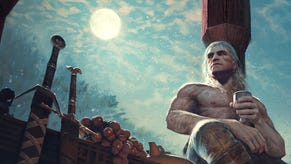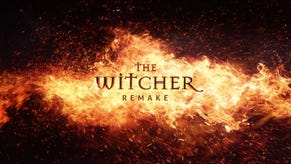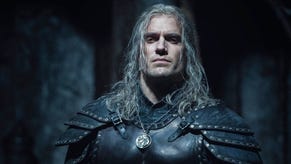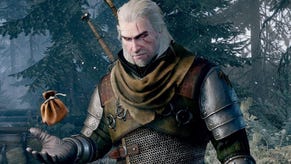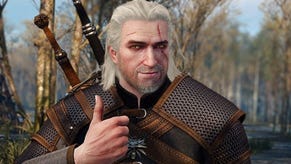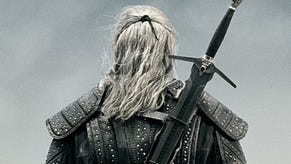The Witcher 2: Assassins of Kings
Son of a witch.
Do you know that strange bit of gaming folklore that an RPG can be judged by its first town? It's true more often that not. Baldur's Gate 2 was a planet-sized experience that thrilled in first setting you loose in the intimidatingly vast city of Amn. The first Fallout's settlement of Shady Sands was a bleak scrap of nowhere where the primitive inhabitants could be saved, perhaps, but they could also be exploited.
The Witcher 2's first quest hub, the damp and drunken swamp town of Flotsam, is as true a statement of intent as I've ever seen in an RPG. If you didn't play the first Witcher and aren't aware of the setting and mythology behind these games, a description of Flotsam should bring you up to speed.
Flotsam is a gory place. On one side, the stinking, moss-coloured Pontar river dutifully carries a huge number of trade vessels, but also a legendary monster. On the other, a larger-than-life fairytale forest hides everything from colonies of burrowing, bloodthirsty imps ("Nekkers") to the Scoia'tael, a guerrilla army of elves.
In the universe of The Witcher, elves and dwarves are the subject of heavy racism from humans, and the Scoia'tael represent a furious, deeply political elf faction who Just Won't Take It Anymore. If they had their way, Flotsam would be reduced to ash. They can't have their way, however, thanks to Flotsam's similarly resolute commander and his disproportionately large, hateful, womanising militia.
Flotasm sounds like hell, right? Wrong. Flotsam's beautiful. Everything from the architecture, to the conversations you overhear, to the tasks given to you by the nervous inhabitants - it's all breathtakingly believable. Flotsam being a disgusting and dangerous place, both materially and morally, isn't the point. The point is that - as you watch a butcher hack a cow apart under a pale sun and listen in on a conversation about who shagged who last night - the setting is real enough that you'll actually be disgusted, and feel in danger.
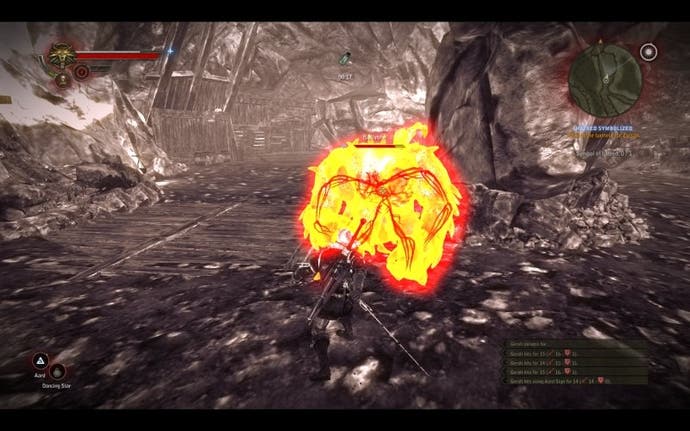
This is the most obvious of The Witcher 2's many achievements. It provides a world that's so well thought out and so lovingly crafted that the player is transported. Flotsam is a shitty place, yes, but The Witcher's is a shitty world. What CD Projekt has achieved here, more so than any RPG I can think of from the last five years, is bringing its (shitty) world to life.
This plausibility extends to the game's merciless plot. It's a tale of love, war, unlikely allegiances, unexpected rape and even more unexpected pregnancies, assassinations and accidents, with so many bent moral codes and political groups that any gamer who wants more than a vague sense of what's going on will often find themselves referring to the brilliantly written in-game codex of information.
For now, it's probably best to sum the plot up by saying that your character, Geralt of Rivia, is trying to prove that he is not, in fact, the titular assassin of kings, and move onto exactly who and what Geralt is.
Geralt is a Witcher, a rare breed of mutant notable for two things. One, they're legendarily strong and have a knack for magic, and make their living as monster slayers. Two, they're sterile, and therefore a hit with ye olde ladies.
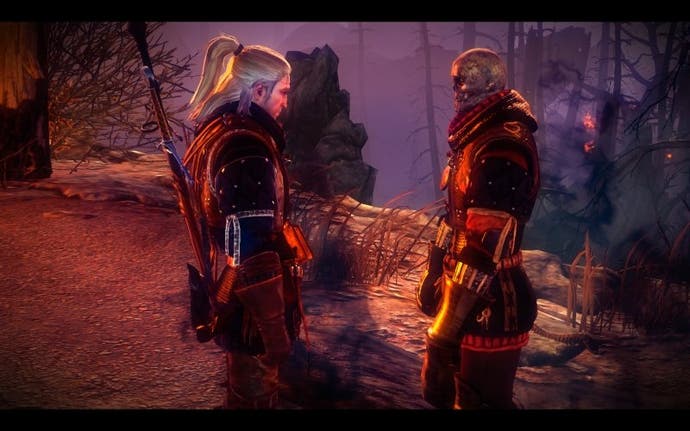
The Witcher games have, a little sadly, come to be defined by all the sex Geralt has, with the "sex cards" you collected in the first game being a pretty memorable feature. The sex cards are actually gone this time around. While Geralt can still seduce his way around the world if you so desire, there's less sex in general (with one wonderfully venomous quest even using the promise of it to trick you). In part that's because this is a shorter game (clocking in at some 25 hours), but also because it's keener to press you into the fighting that defines Geralt.
Combat is also the key area where The Witcher 2 falls from greatness. When it works, which it does for most of the time, it's a joy. Simultaneously slow and panicked, you control Geralt from a third-person perspective, delivering heavy blows from one of his two-handed swords (silver for monsters, steel for everything else) with clicks from the mouse. A few key shortcuts handle magic, evasive rolls, throwing knives and traps.
Combat itself is a matter of crowd control. You get hits in where you can, cast spells when you can't, and live in terror of being flanked. Being totally surrounded results in you getting bounced around like a football with such incredible brutality that it might be funny if it weren't happening to you.

